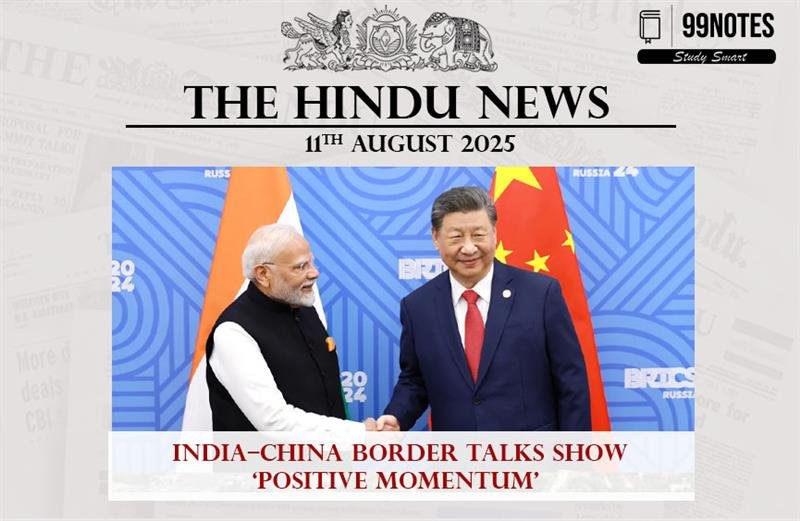12 August 2025: The Hindu Editorial
1. Nuclear threat is Pakistan’s ‘stock-in-trade’: Centre
Source -Page 1, The Hindu
| Topic: GS Paper 2 – International Relations, Security Issues |
| Context |
|
Background:
-
The Indus Waters Treaty (1960), brokered by the World Bank, governs sharing of the Indus and its tributaries between India and Pakistan.
-
India has full rights over eastern rivers (Ravi, Beas, Sutlej) and limited rights over western rivers (Indus, Jhelum, Chenab).
-
Pakistan has repeatedly accused India of violating the treaty through hydroelectric and dam projects.
Pakistan’s Statement:
-
Field Marshal Asim Munir claimed that India’s “unilateral” dam projects would be met with “all means necessary,” explicitly hinting at nuclear options.
-
The rhetoric comes amid domestic political instability in Pakistan, possibly used to rally nationalist sentiment.
India’s Response:
-
MEA described Pakistan’s nuclear threats as a habitual (“stock-in-trade”) diplomatic tactic.
-
India emphasised its treaty compliance and reiterated that its projects are within permissible limits.
-
The MEA’s strong language aimed at signalling zero tolerance for nuclear blackmail.
UPSC Significance:
-
Strategic Stability: Such statements heighten nuclear risk in South Asia.
-
Diplomatic Protocol: Use of provocative language in international relations.
-
Nuclear Doctrine: India’s No First Use (NFU) policy contrasts with Pakistan’s first-use posture.
-
Treaty Obligations: Dispute resolution under IWT arbitration mechanisms.
Way Forward:
-
Use diplomatic channels for de-escalation.
-
Seek international mediation only within treaty provisions.
-
Continue infrastructure projects while maintaining compliance and transparency.
|
Practice Question: “Discuss the implications of Pakistan’s nuclear rhetoric on India-Pakistan relations and the stability of the Indus Waters Treaty.” |
Read more about -11August 2025: The Hindu Editorial Analysis

